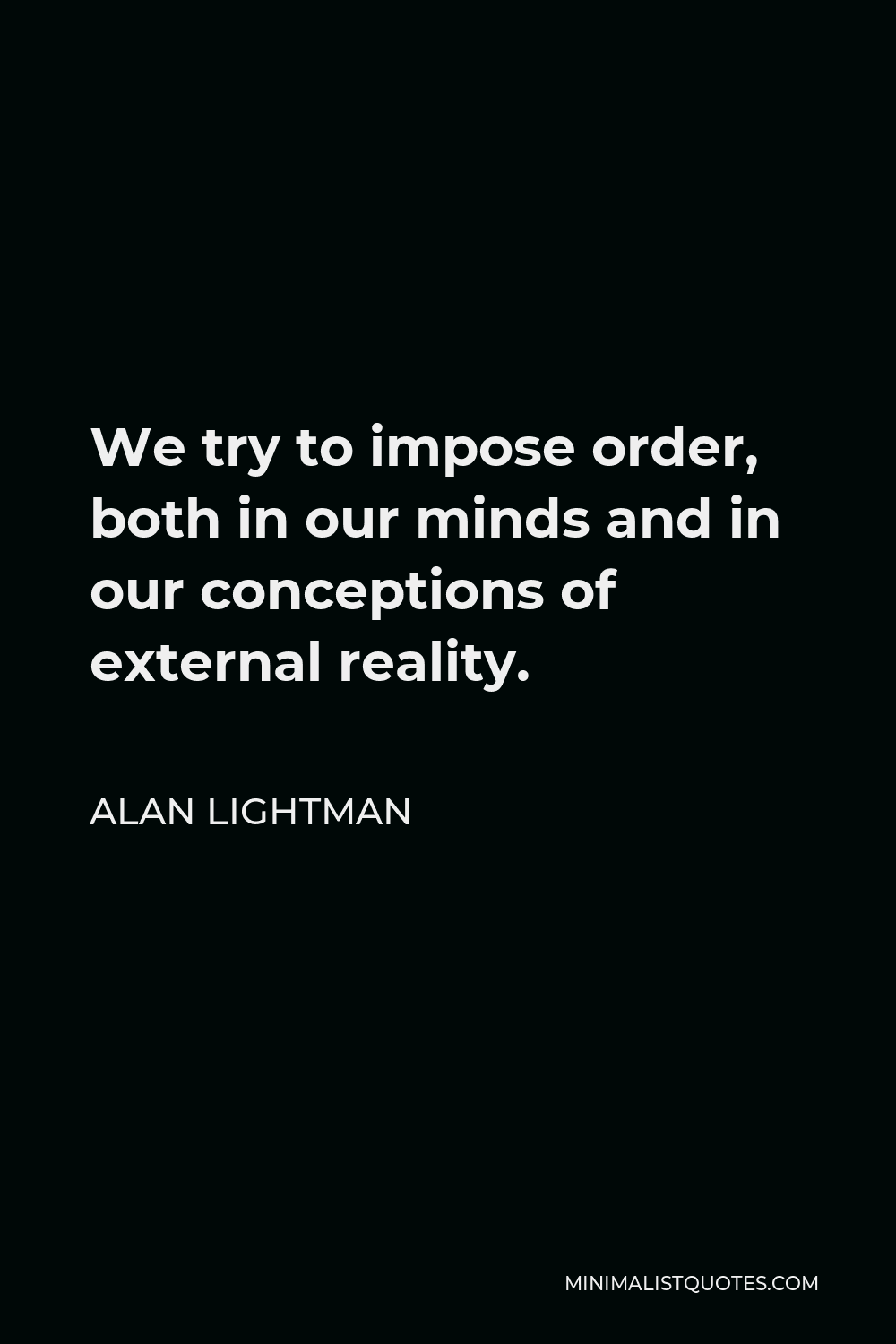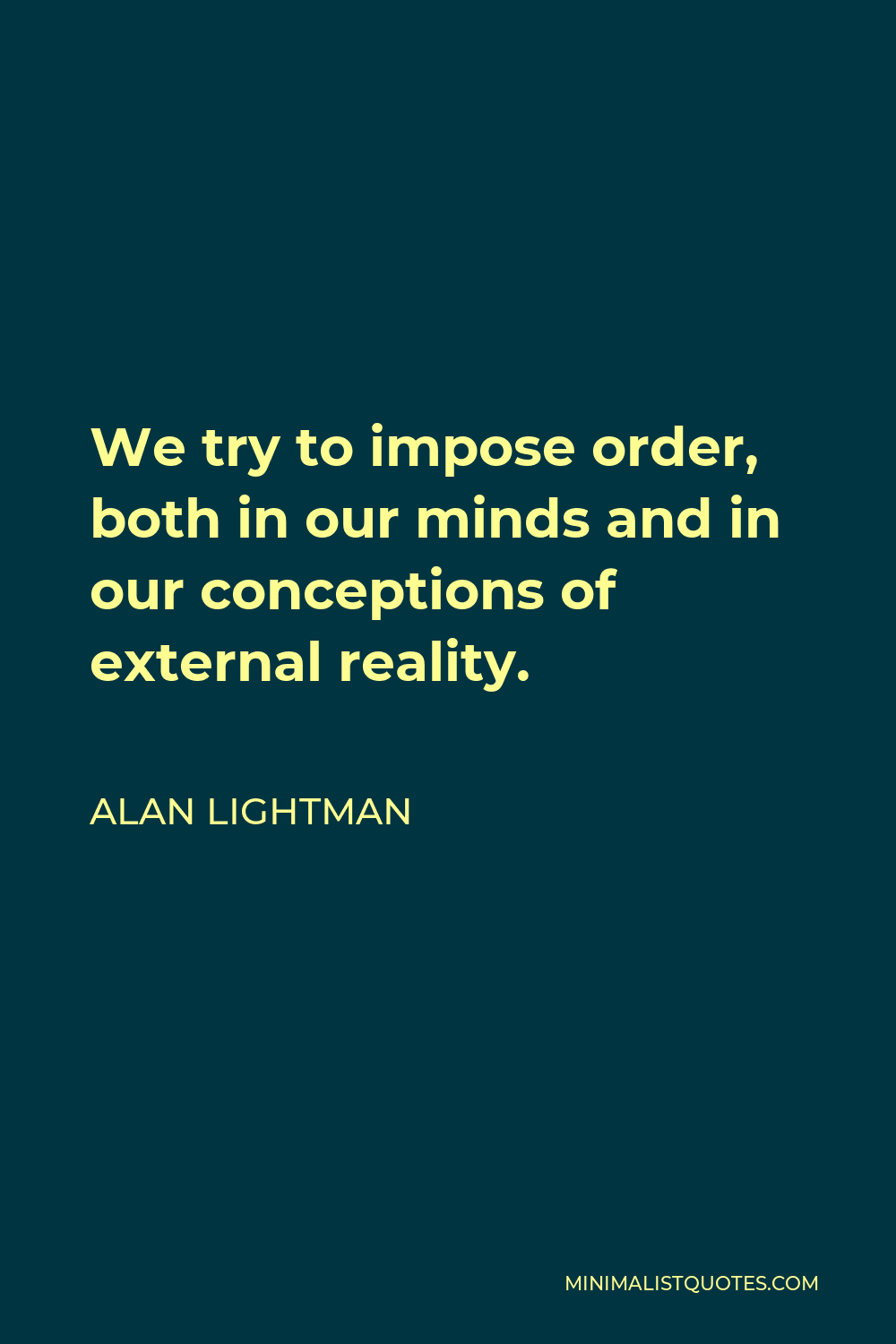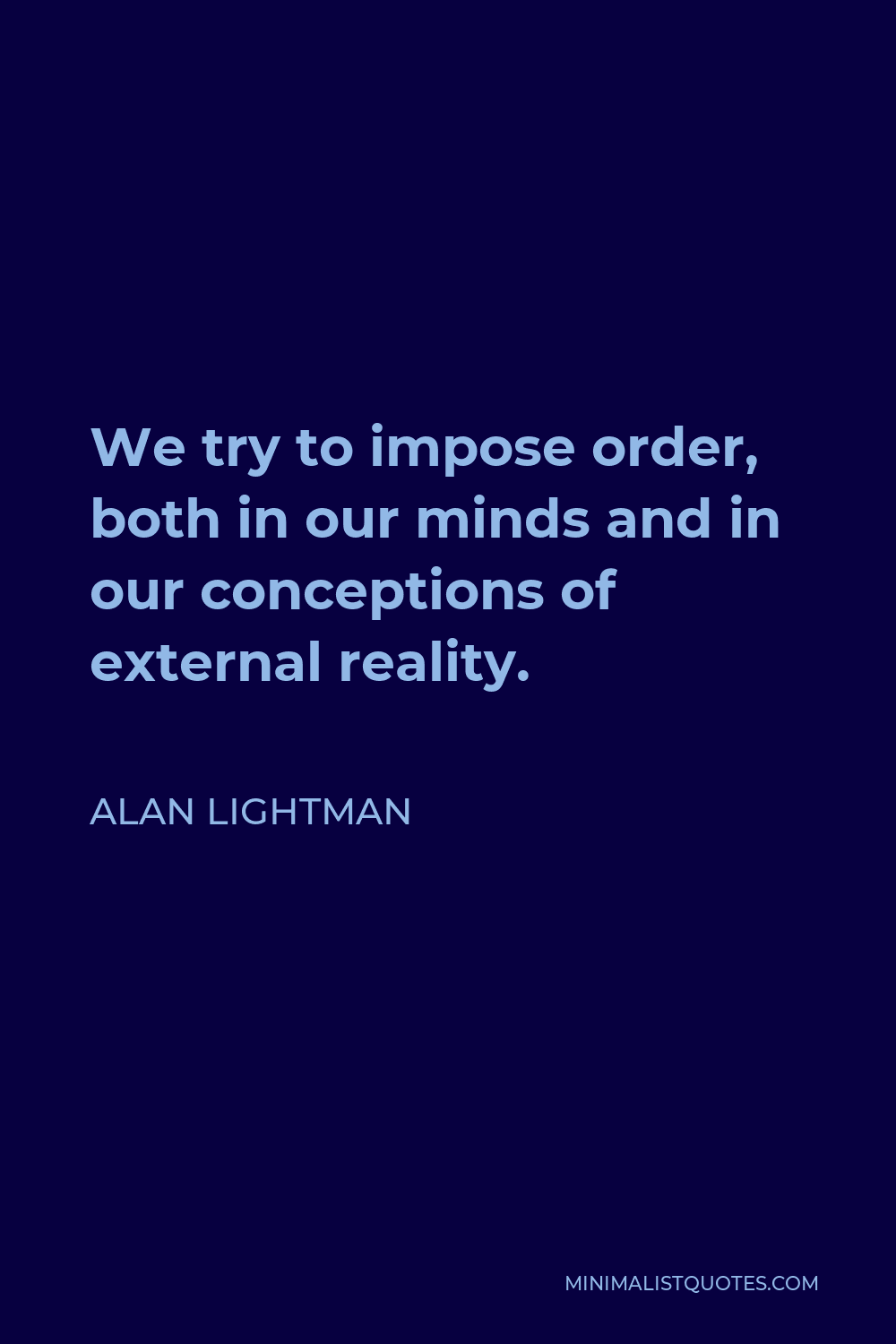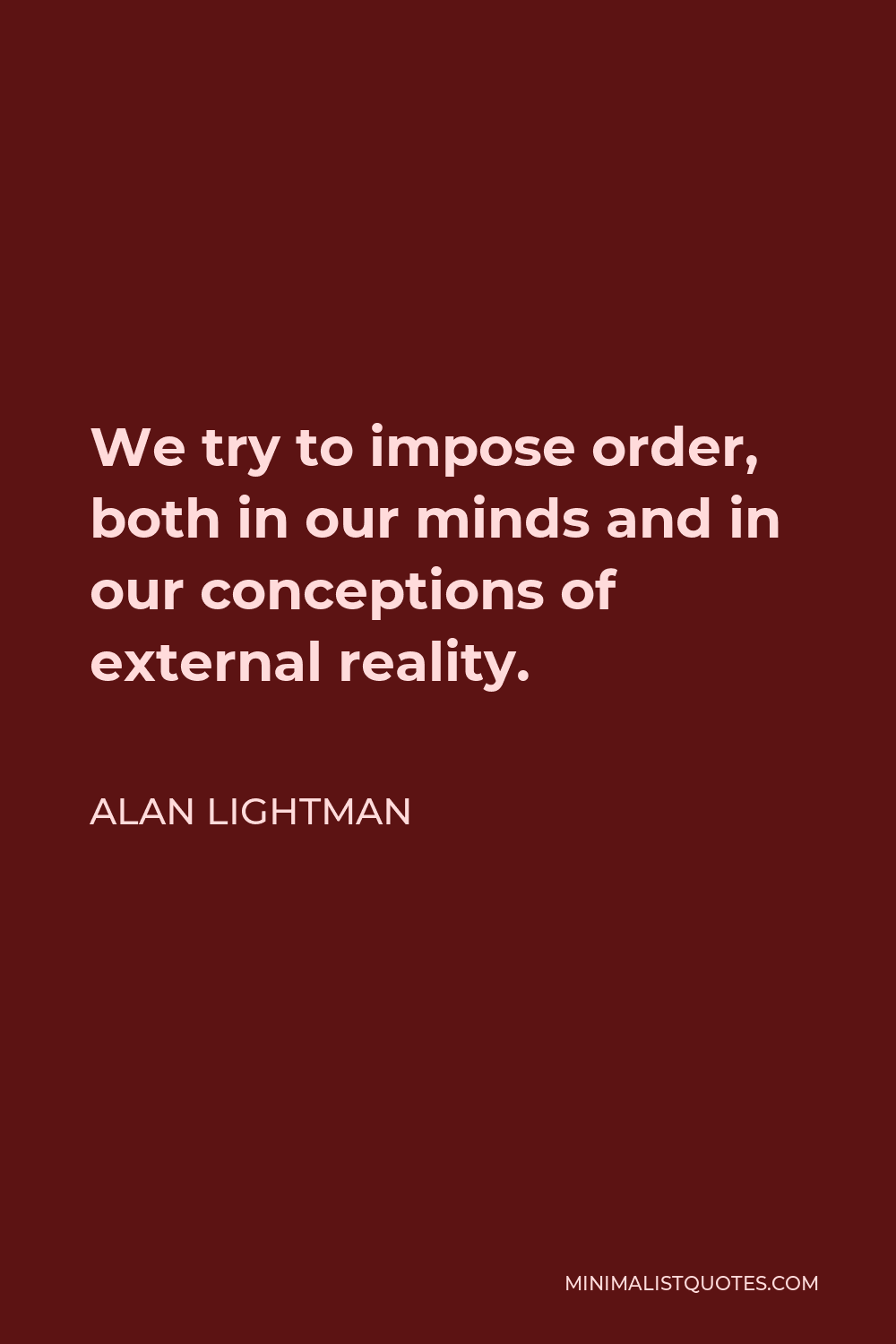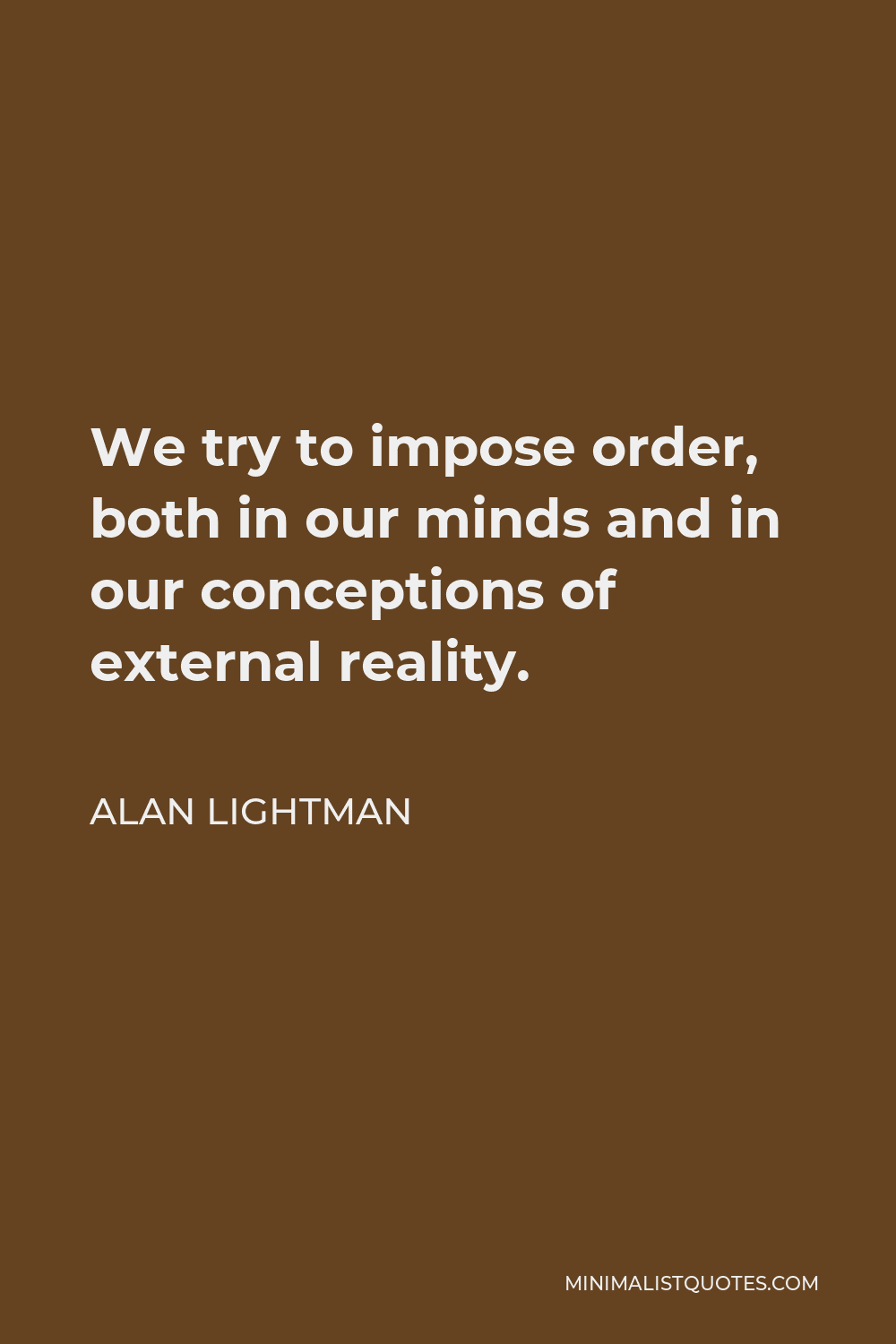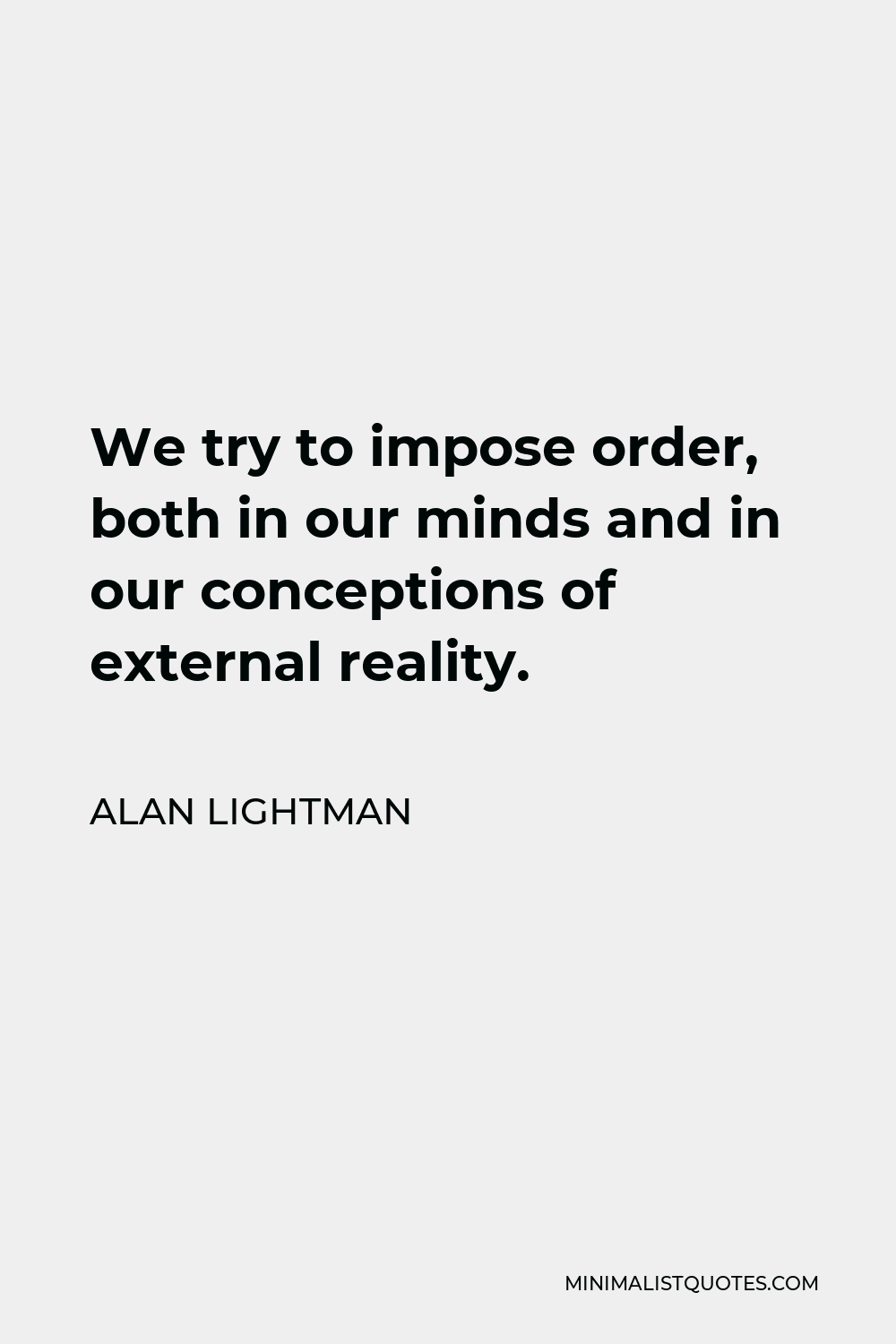The tragedy of this world is that no one is happy, whether stuck in a time of pain or joy.
ALAN LIGHTMANWe try to impose order, both in our minds and in our conceptions of external reality.
More Alan Lightman Quotes
-





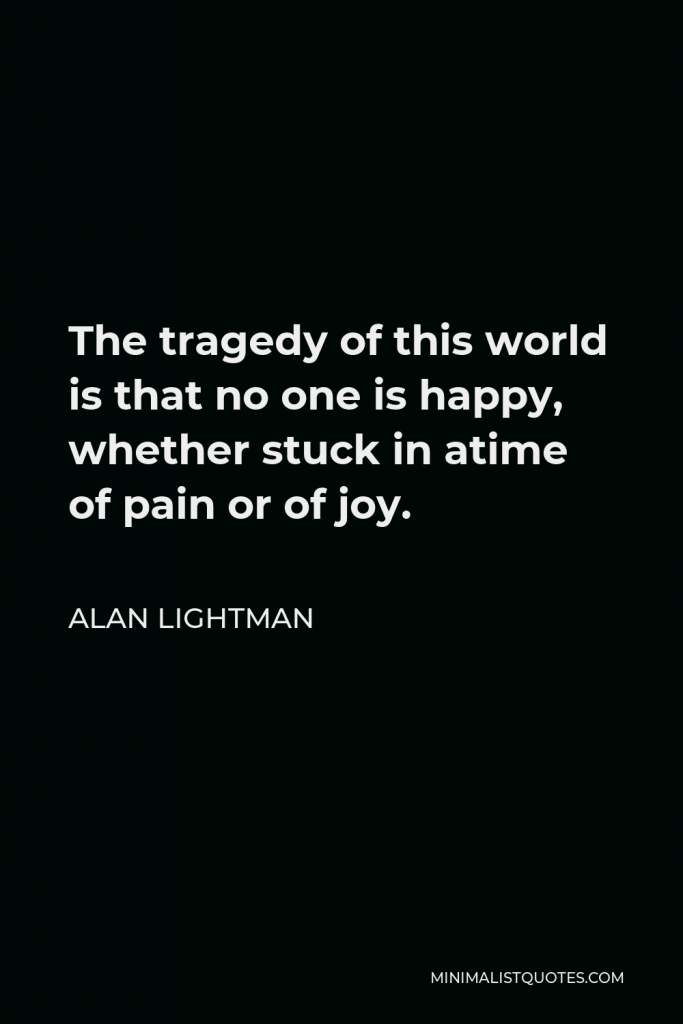

-





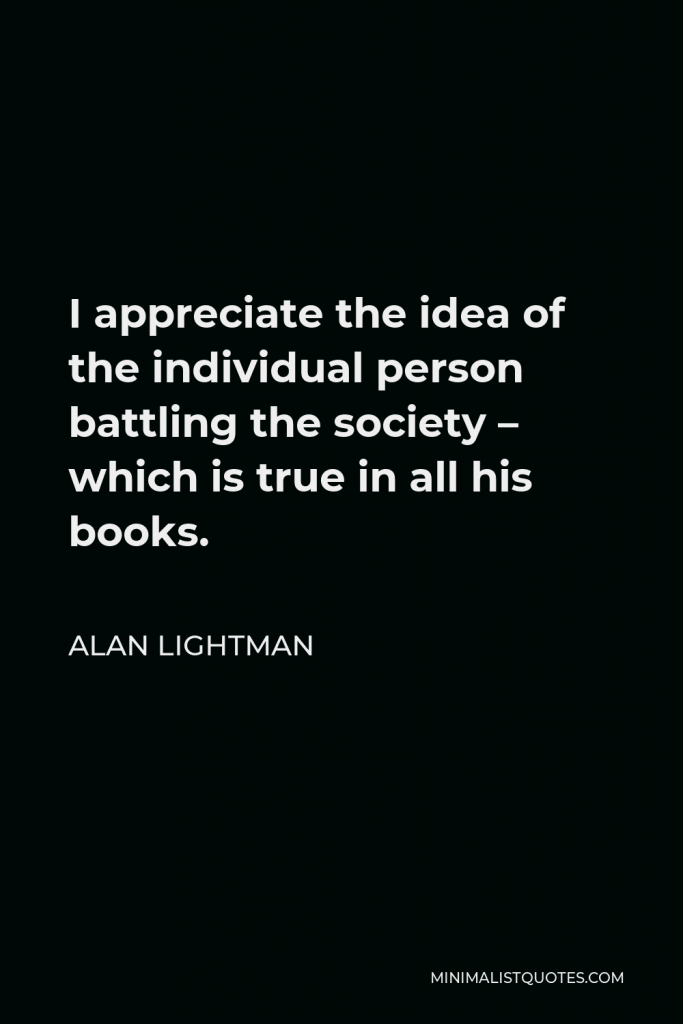

I appreciate the idea of the individual person battling the society – which is true in all his books.
ALAN LIGHTMAN -





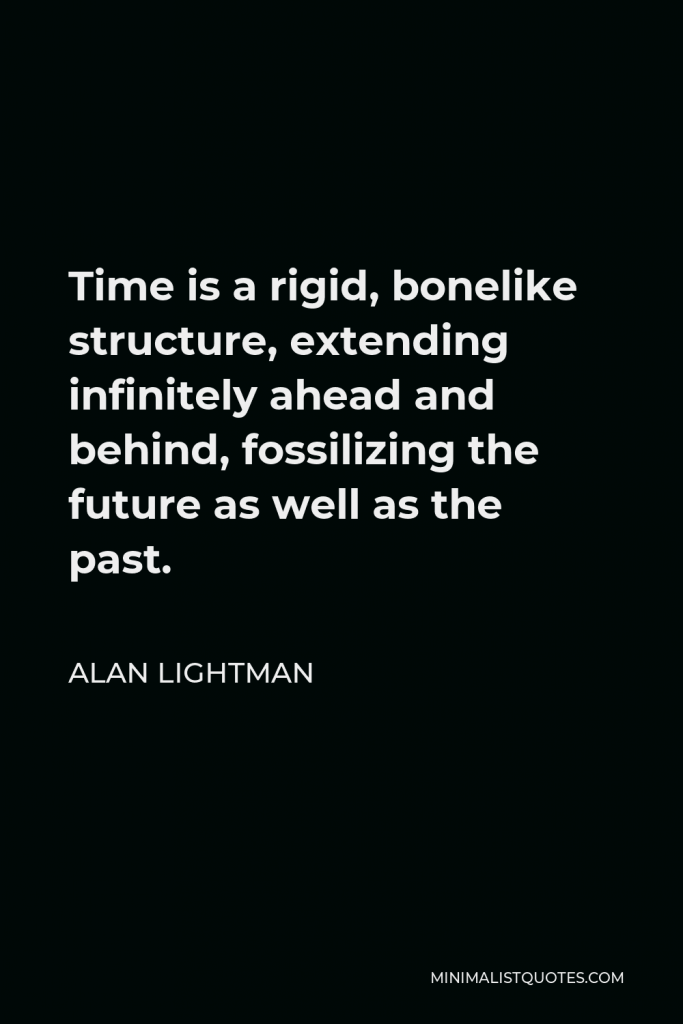

Time is a rigid, bonelike structure, extending infinitely ahead and behind, fossilizing the future as well as the past.
ALAN LIGHTMAN -





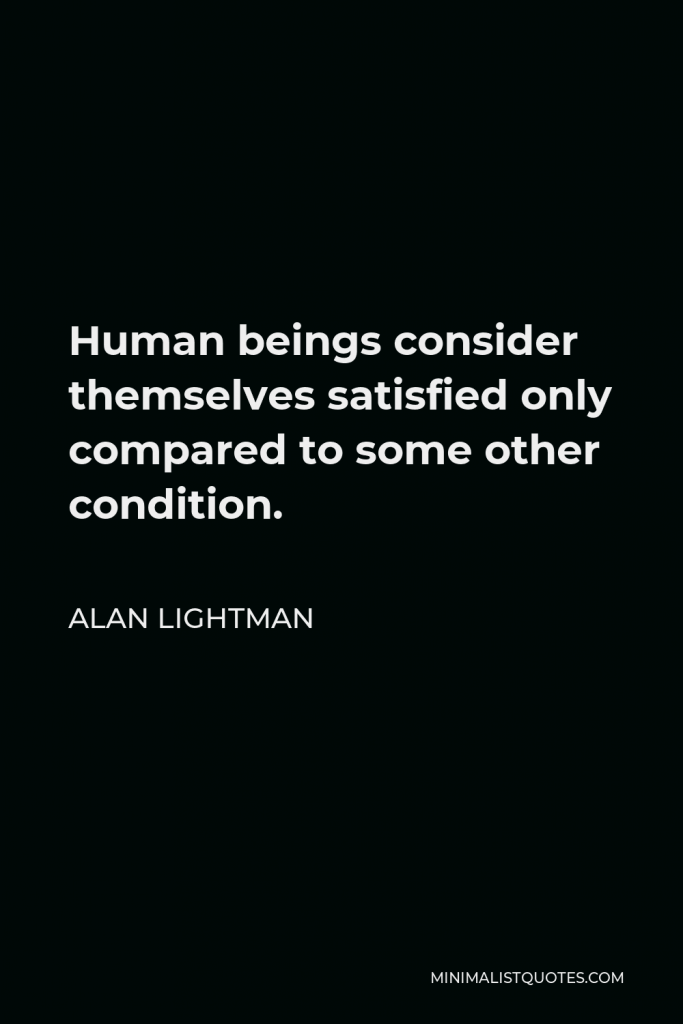

Human beings consider themselves satisfied only compared to some other condition.
ALAN LIGHTMAN -





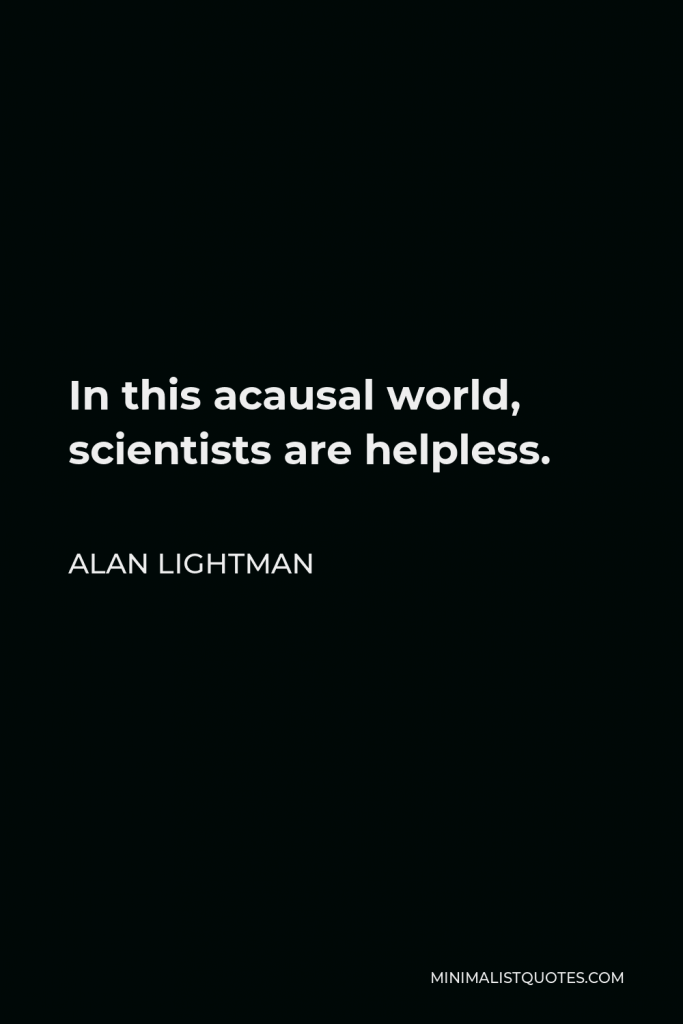

In this acausal world, scientists are helpless.
ALAN LIGHTMAN -





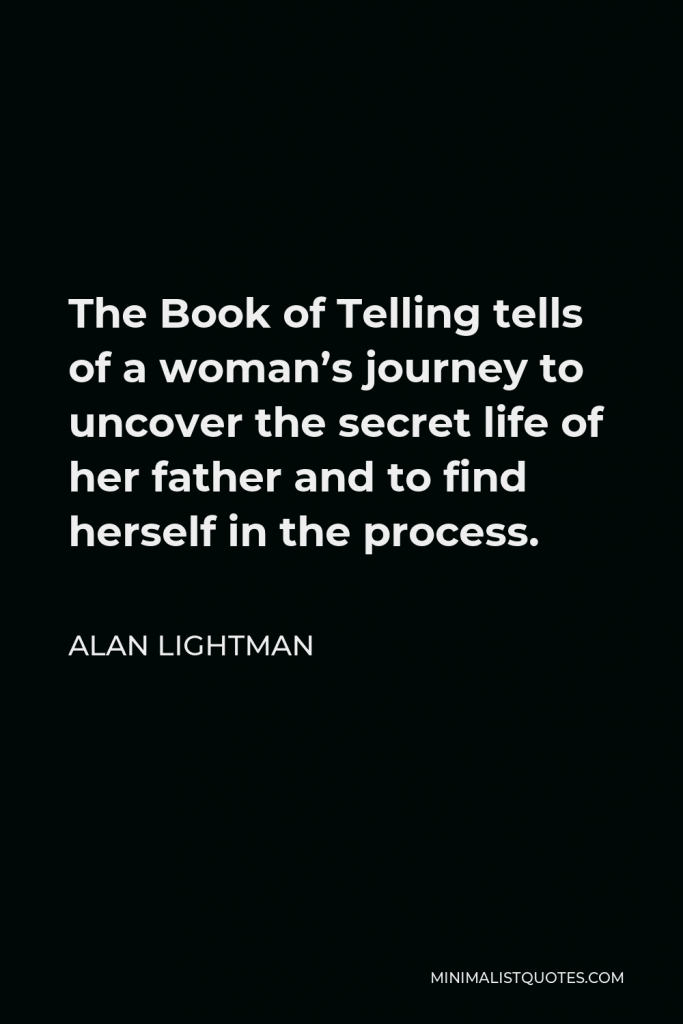

The Book of Telling tells of a woman’s journey to uncover the secret life of her father and to find herself in the process.
ALAN LIGHTMAN -





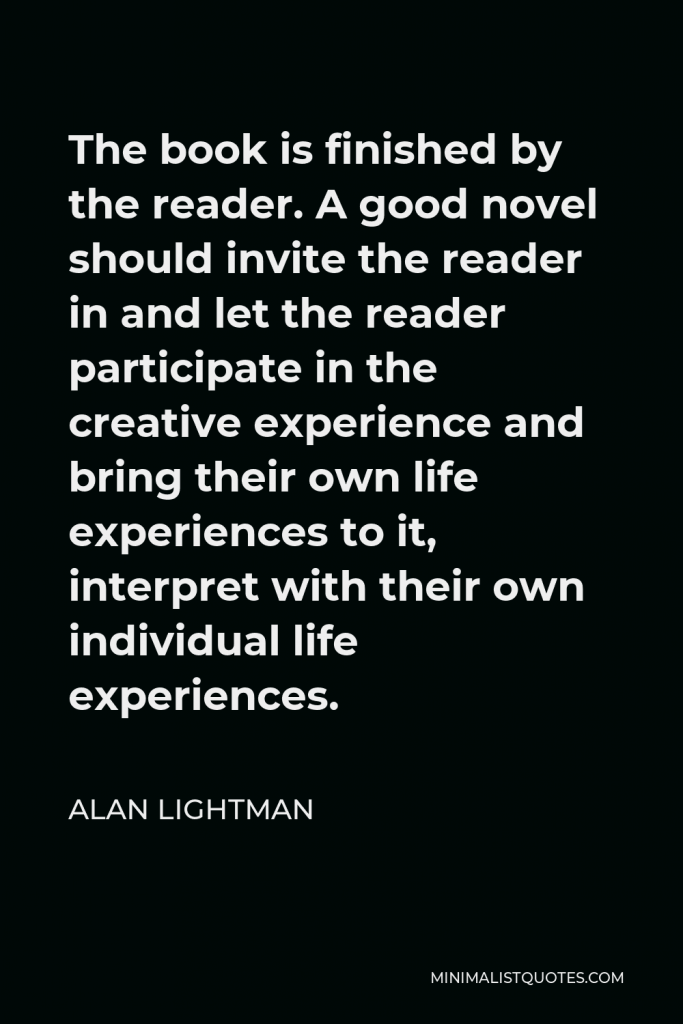

The book is finished by the reader. A good novel should invite the reader in and let the reader participate in the creative experience and bring their own life experiences to it, interpret with their own individual life experiences.
ALAN LIGHTMAN -





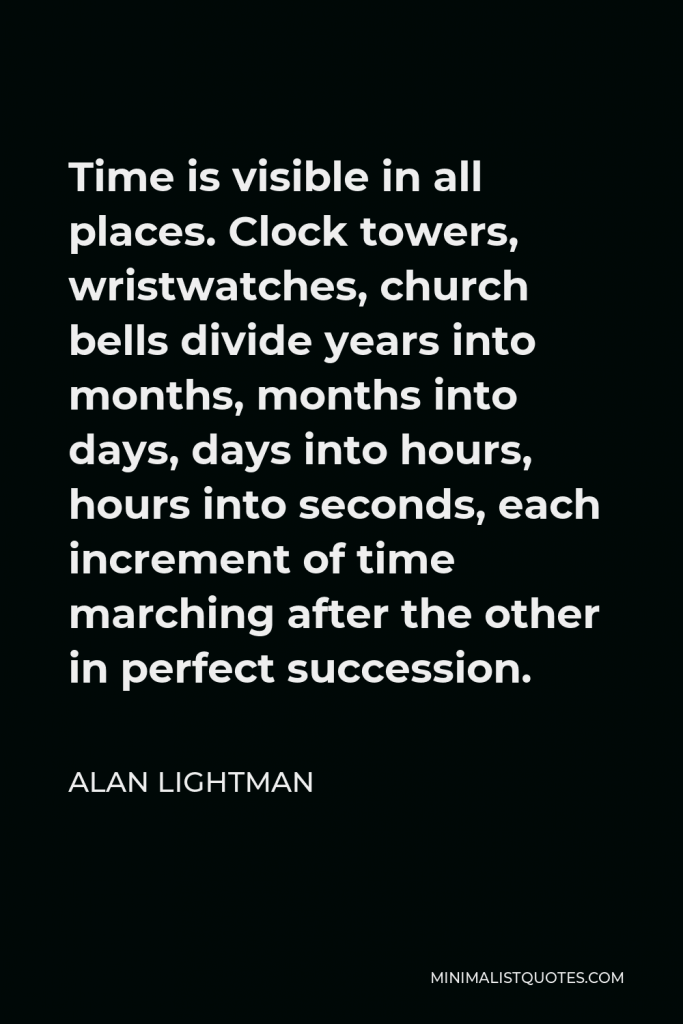

Time is visible in all places. Clock towers, wristwatches, church bells divide years into months, months into days, days into hours, hours into seconds, each increment of time marching after the other in perfect succession.
ALAN LIGHTMAN -





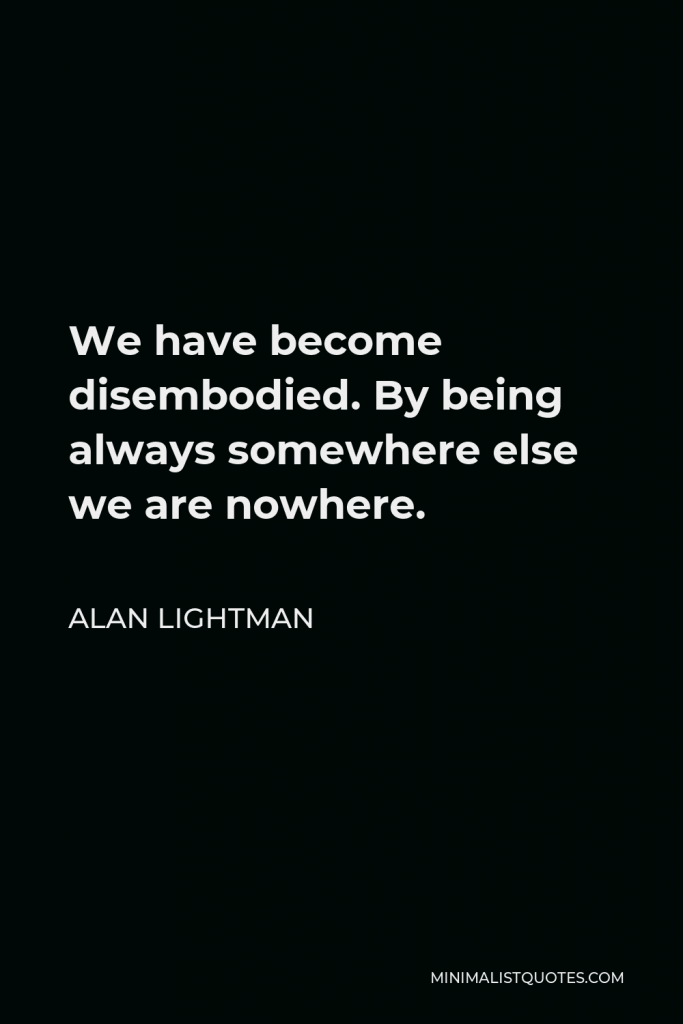

We have become disembodied. By being always somewhere else we are nowhere.
ALAN LIGHTMAN -





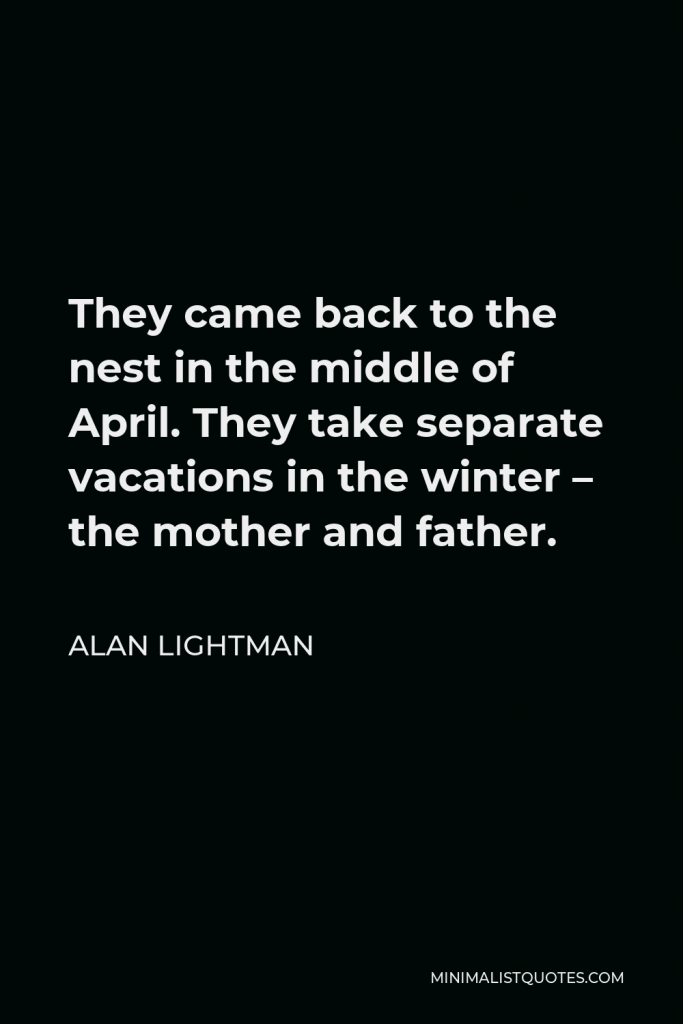

They came back to the nest in the middle of April. They take separate vacations in the winter – the mother and father.
ALAN LIGHTMAN -





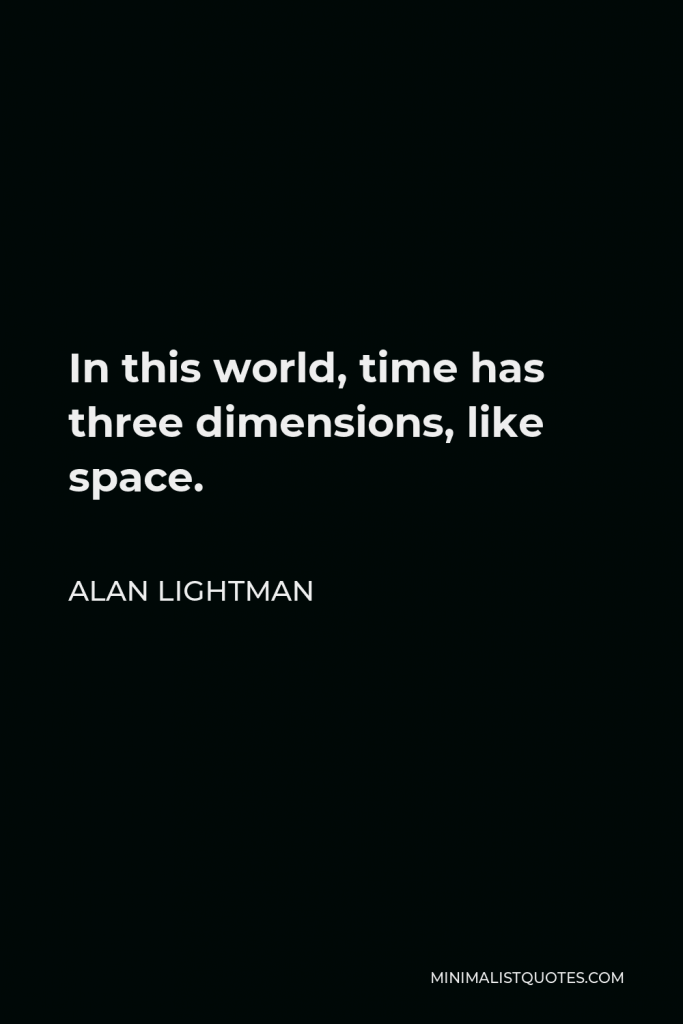

In this world, time has three dimensions, like space.
ALAN LIGHTMAN -





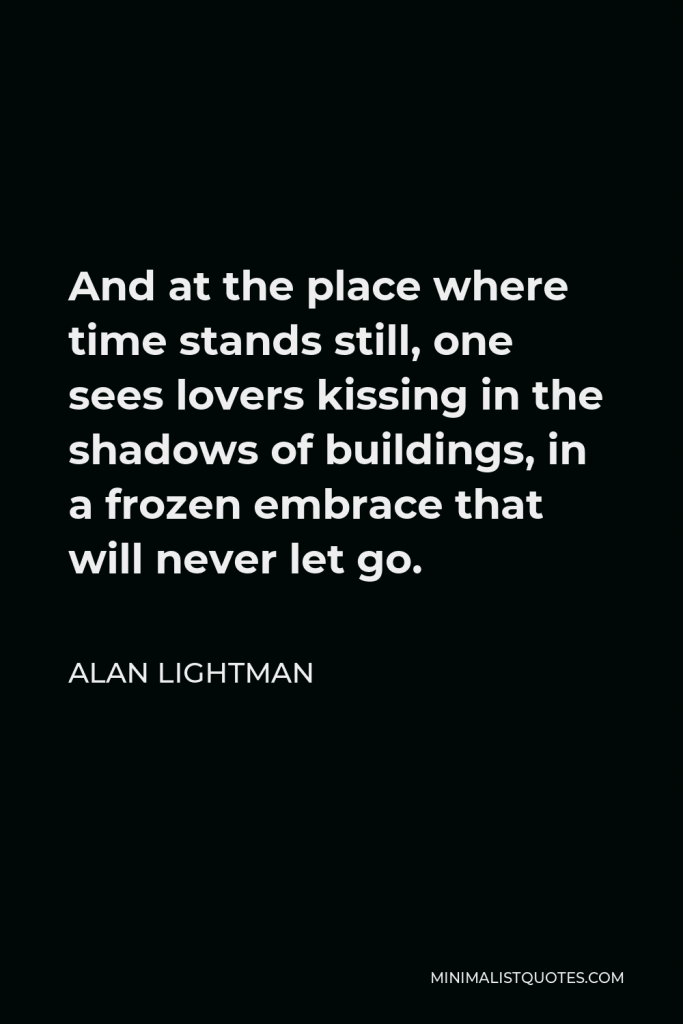

And at the place where time stands still, one sees lovers kissing in the shadows of buildings, in a frozen embrace that will never let go.
ALAN LIGHTMAN -





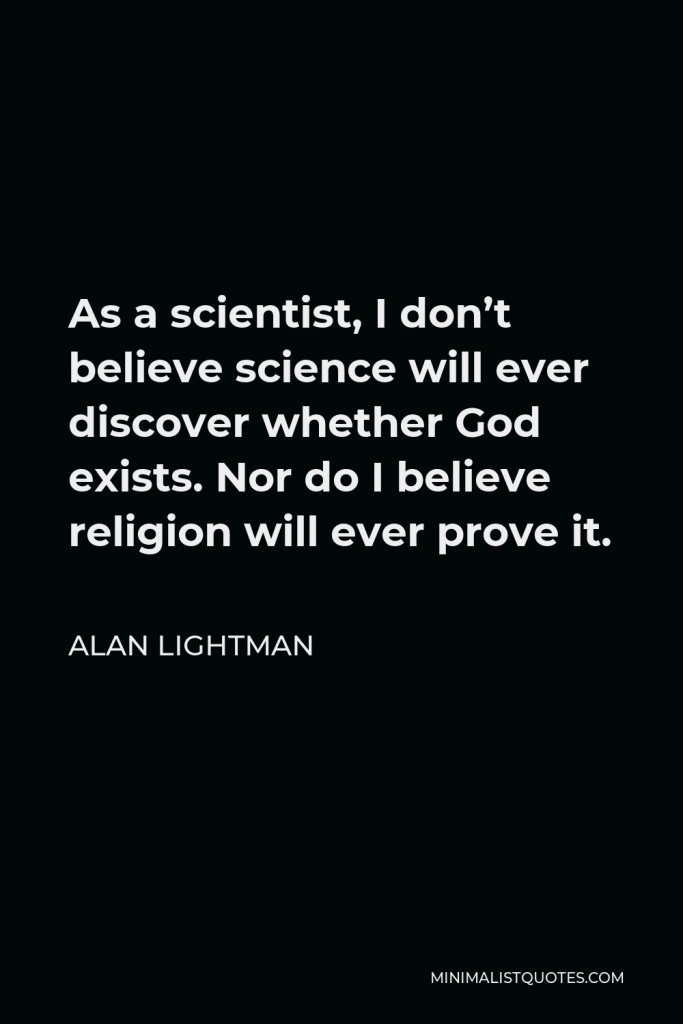

As a scientist, I don’t believe science will ever discover whether God exists. Nor do I believe religion will ever prove it.
ALAN LIGHTMAN -





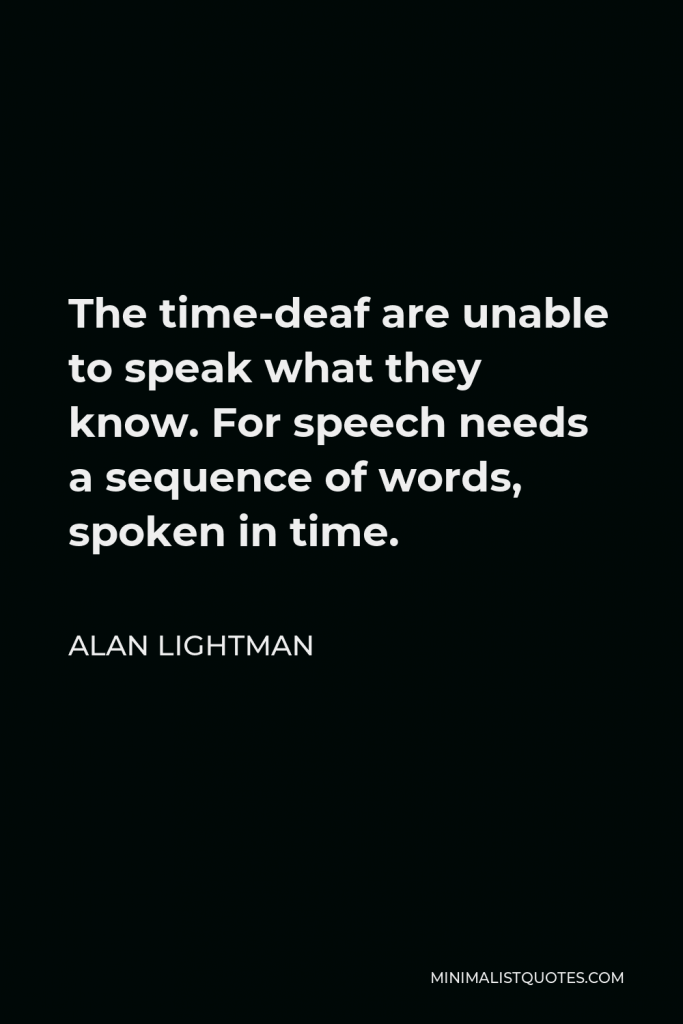

The time-deaf are unable to speak what they know. For speech needs a sequence of words, spoken in time.
ALAN LIGHTMAN -





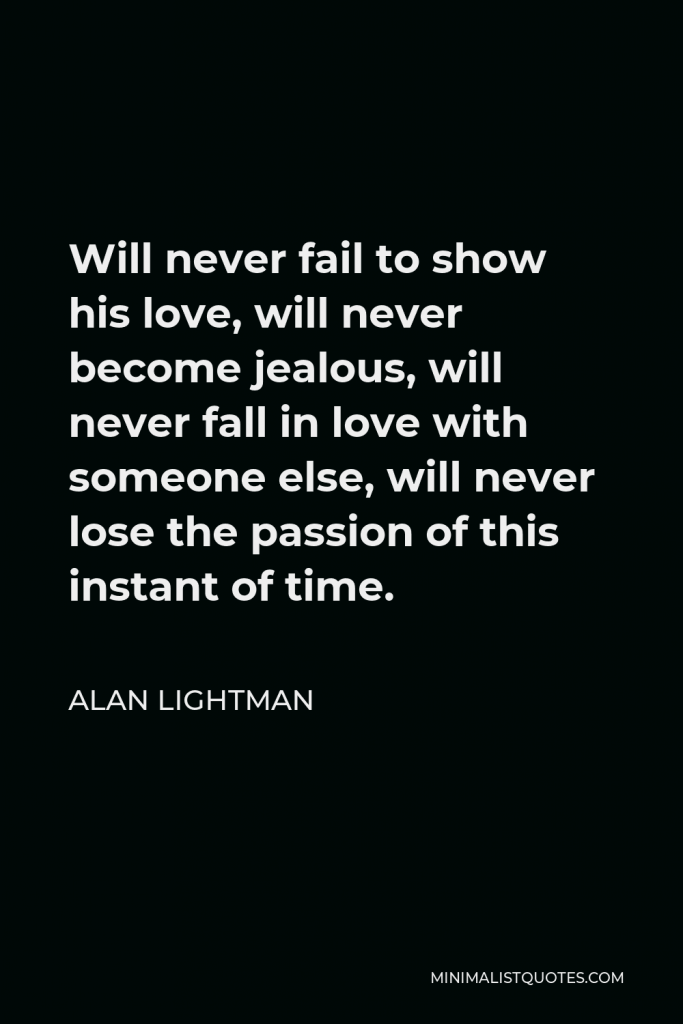

Will never fail to show his love, will never become jealous, will never fall in love with someone else, will never lose the passion of this instant of time.
ALAN LIGHTMAN -





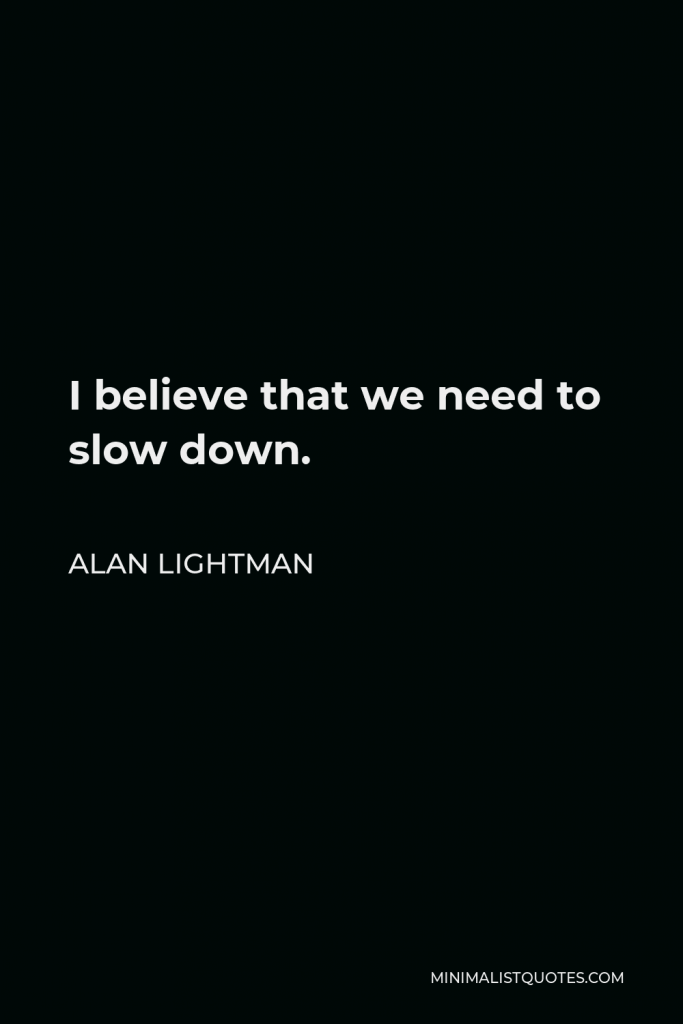

I believe that we need to slow down.
ALAN LIGHTMAN
